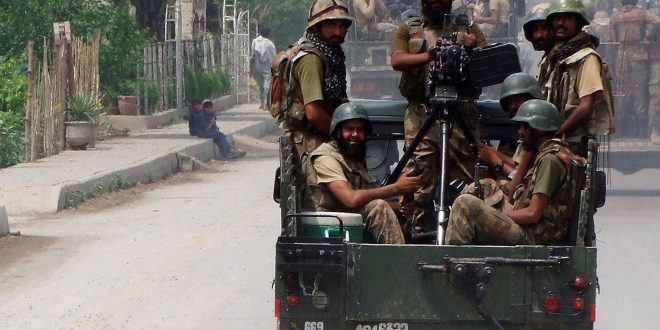Pakistan faces growing threats on two western fronts

KABUL – Pakistan has found itself confronted by increasing tensions on its western borders with Iran and Taliban-led Afghanistan. The historically stable relationship with Iran took a hit as both nations engaged in hostilities, marked by mutual strikes and territorial clashes. While a temporary patch-up has been achieved, underlying differences persist. The recent killing of nine Pakistanis inside Iran further underscores the volatility of the situation.
Meanwhile, the relationship with Taliban-led Afghanistan is strained, primarily due to border skirmishes initiated by the Tahreek-e-Taliban Pakistan, aligning itself with the Afghan leadership. Forced migration of Afghans back to their homeland exacerbates the bilateral discord. Despite the absence of open hostility, the potential for escalated issues along the border remains, fueled by the sensitivity surrounding the Durand Line and the Pashtun population in Pakistan.
Critics argue that Pakistan lacks appropriate strategic instincts to address these challenges, attributing it to a distorted culture of national security primarily focused on India. The National Security Policy (2022-26) reflects this, portraying both Iran and Afghanistan in benign and friendly terms, neglecting to acknowledge them as potential security challenges. The shallow garrisoning along the Durand Line and Iran border, totaling over 3000 km, raises concerns about Pakistan’s ability to defend against a serious frontal assault.
In a hypothetical war scenario, the comparison of military powers between Pakistan and Iran suggests a challenging prospect for Pakistan. With an economy already under stress and a divided army primarily united against India, managing multiple war fronts becomes an economic and strategic burden. Pakistan’s historic military defeats against India further complicate the prospect of successfully handling conflicts on multiple fronts.
The article suggests that Pakistan must reassess its national security culture, moving away from Islamic norms to accurately perceive challenges on its western frontiers. This shift could pave the way for a strategic restructuring, allowing Pakistan to consolidate and strengthen its military presence, providing hope for managing the complex and uncertain regional security dynamics with Iran and Afghanistan. The evolving situation demands serious contemplation from Pakistan’s military establishment.
Culled from Afghanistan Times

